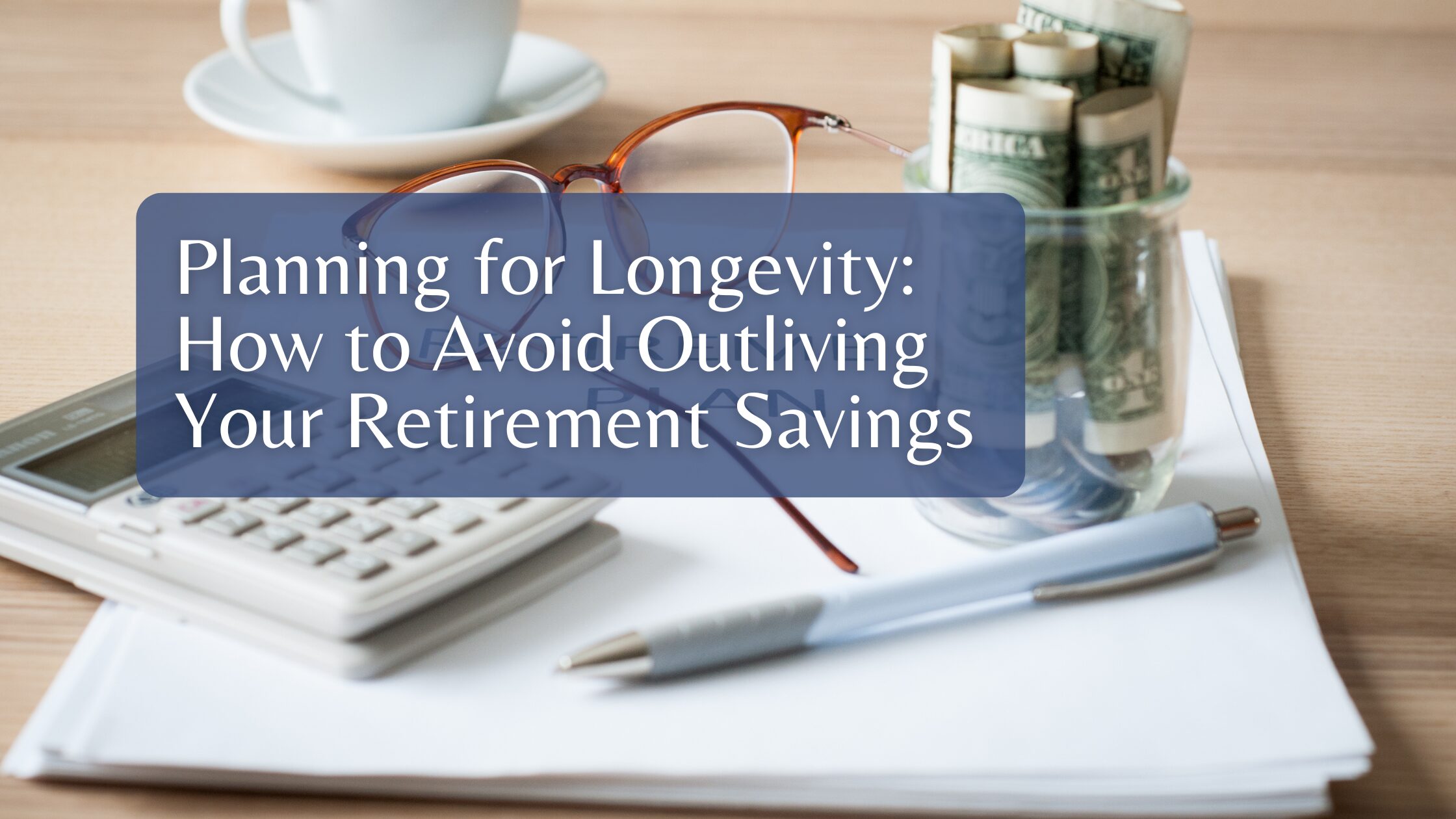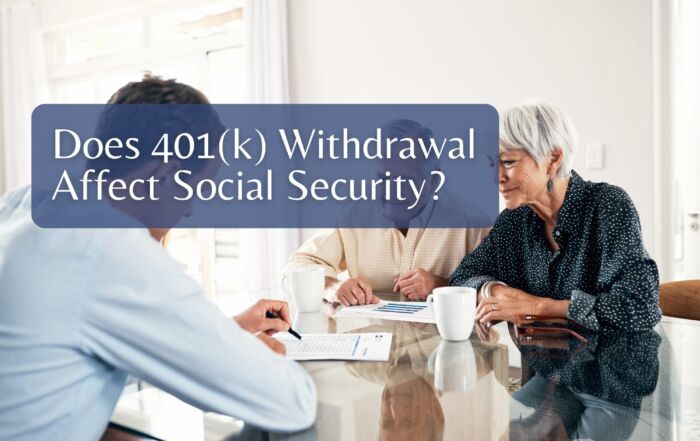Planning for Longevity: How to Avoid Outliving Your Retirement Savings

Life expectancy in the United States continues to rise. While growth slowed in recent years due to the pandemic, the long-term trend remains upward. That’s good news, but it also brings new challenges. One of the most significant is longevity risk, or the possibility of outliving your retirement savings. At Wiser Wealth Management, we refer to this as outliving “your plan.” Without proper preparation, longevity risk can lead to financial hardship in the later years of life, especially as healthcare costs, inflation, and unexpected events compound the challenge.
3 Key Risks and Strategies to Help You Prepare:
Risk 1: Living Longer Than You Planned For
People often underestimate how long they’ll live in retirement. At Wiser, we plan for clients to live to at least age 95. While this may seem conservative, there’s a real possibility that one or both spouses could reach that age. Planning for the most conservative case ensures you’re protected, not caught off guard.
Strategy 1: Maximize Your Social Security Benefit
One effective way to guard against longevity risk is by delaying Social Security benefits until age 70. For each year you wait past your full retirement age (typically 67), your benefit increases by about 8% annually, plus inflation adjustments. This creates a larger, guaranteed income stream later in life, when it may be needed most.
Risk 2: Inflation
Inflation quietly erodes purchasing power over time. Even modest inflation can significantly impact your retirement savings over a 20- or 30-year span. At Wiser, we currently use a 2.5% inflation assumption in plans, an increase in recent years due to economic conditions. It’s critical to account for inflation in your retirement strategy to ensure long-term success.
Strategy 2: Optimize Retirement Savings and Investments
Maximizing contributions to retirement accounts like 401(k)s, IRAs, or 403(b)s during your working years helps build a strong financial foundation. Diversifying your portfolio across asset classes, such as stocks, bonds, and inflation-protected securities, can also reduce risk and improve resilience. In retirement, continue to diversify while establishing a “cash bucket” with stable, inflation-sensitive investments like Treasury Inflation-Protected Securities (TIPS) to help cover short-term needs.
Risk 3: Rising Healthcare Costs
Healthcare is one of the most significant and often underestimated expenses in retirement. With medical costs increasing by an average of 5.4% annually (outpacing general inflation), failing to plan for them can jeopardize your financial security. If you’re eligible for retiree health benefits from a former employer, it may be wise to delay retirement until those benefits kick in, especially if you’re not yet Medicare-eligible.
Strategy 3: Use HSAs and Consider Long-Term Care Insurance
A Health Savings Account (HSA) is a powerful tool if you’re eligible. It offers triple tax advantages: contributions are tax-deductible, earnings grow tax-free, and distributions are tax-free when used for qualified medical expenses. Long-term care insurance can also help offset high costs later in life. Modern policies are more flexible than in the past, with hybrid options that can be shared between spouses or provide a death benefit if unused. These are typically most cost-effective when purchased in your mid-to-late 50s.
Avoid Outliving Your Retirement Savings
Many factors influence your retirement timeline and the risk of outliving your savings. The key is to plan thoughtfully and proactively. If you’re ready to create a retirement plan built to last, schedule a consultation with one of Wiser Wealth Management’s fiduciary financial advisors. We’ll help you build a strategy that supports your goals and prepares you for the long run.
Have questions? Feel free to contact us.
Michaela Dowdy
Financial Advisor, Wiser Wealth Management
Share This Story, Choose Your Platform!
Wiser Wealth Management, Inc (“Wiser Wealth”) is a registered investment adviser with the U.S. Securities and Exchange Commission (SEC). As a registered investment adviser, Wiser Wealth and its employees are subject to various rules, filings, and requirements. You can visit the SEC’s website here to obtain further information on our firm or investment adviser’s registration.
Wiser Wealth’s website provides general information regarding our business along with access to additional investment related information, various financial calculators, and external / third party links. Material presented on this website is believed to be from reliable sources and is meant for informational purposes only. Wiser Wealth does not endorse or accept responsibility for the content of any third-party website and is not affiliated with any third-party website or social media page. Wiser Wealth does not expressly or implicitly adopt or endorse any of the expressions, opinions or content posted by third party websites or on social media pages. While Wiser Wealth uses reasonable efforts to obtain information from sources it believes to be reliable, we make no representation that the information or opinions contained in our publications are accurate, reliable, or complete.
To the extent that you utilize any financial calculators or links in our website, you acknowledge and understand that the information provided to you should not be construed as personal investment advice from Wiser Wealth or any of its investment professionals. Advice provided by Wiser Wealth is given only within the context of our contractual agreement with the client. Wiser Wealth does not offer legal, accounting or tax advice. Consult your own attorney, accountant, and other professionals for these services.





